5 Planetary cooling: The surface area to volume ratio
advertisement
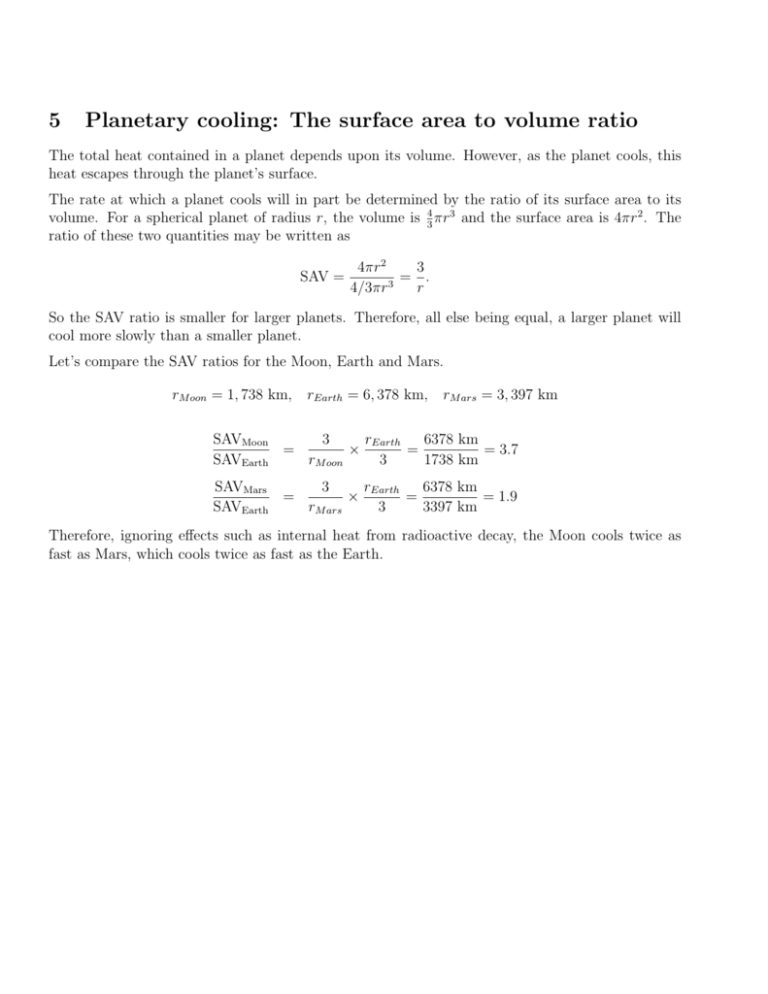
5 Planetary cooling: The surface area to volume ratio The total heat contained in a planet depends upon its volume. However, as the planet cools, this heat escapes through the planet’s surface. The rate at which a planet cools will in part be determined by the ratio of its surface area to its volume. For a spherical planet of radius r, the volume is 43 πr3 and the surface area is 4πr2 . The ratio of these two quantities may be written as SAV = 4πr2 3 = . 3 4/3πr r So the SAV ratio is smaller for larger planets. Therefore, all else being equal, a larger planet will cool more slowly than a smaller planet. Let’s compare the SAV ratios for the Moon, Earth and Mars. rM oon = 1, 738 km, rEarth = 6, 378 km, rM ars = 3, 397 km 3 rEarth 6378 km SAVMoon = × = = 3.7 SAVEarth rM oon 3 1738 km SAVMars 3 rEarth 6378 km = × = = 1.9 SAVEarth rM ars 3 3397 km Therefore, ignoring effects such as internal heat from radioactive decay, the Moon cools twice as fast as Mars, which cools twice as fast as the Earth.


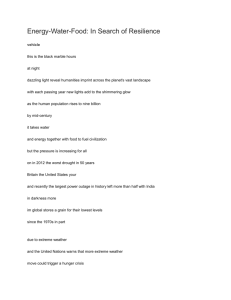

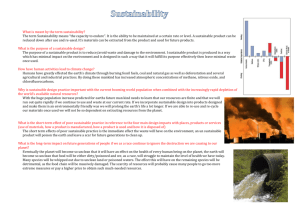
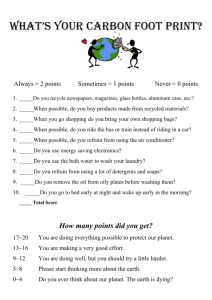
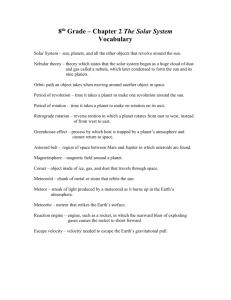

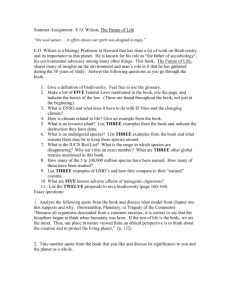
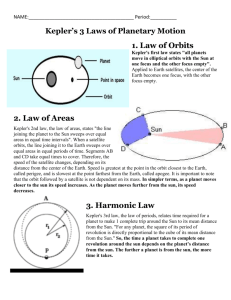
![Quiz 6 and Solutions [93 kb pdf]](http://s3.studylib.net/store/data/008666158_1-2aed89ee1e83376937fa5c17b6845649-300x300.png)